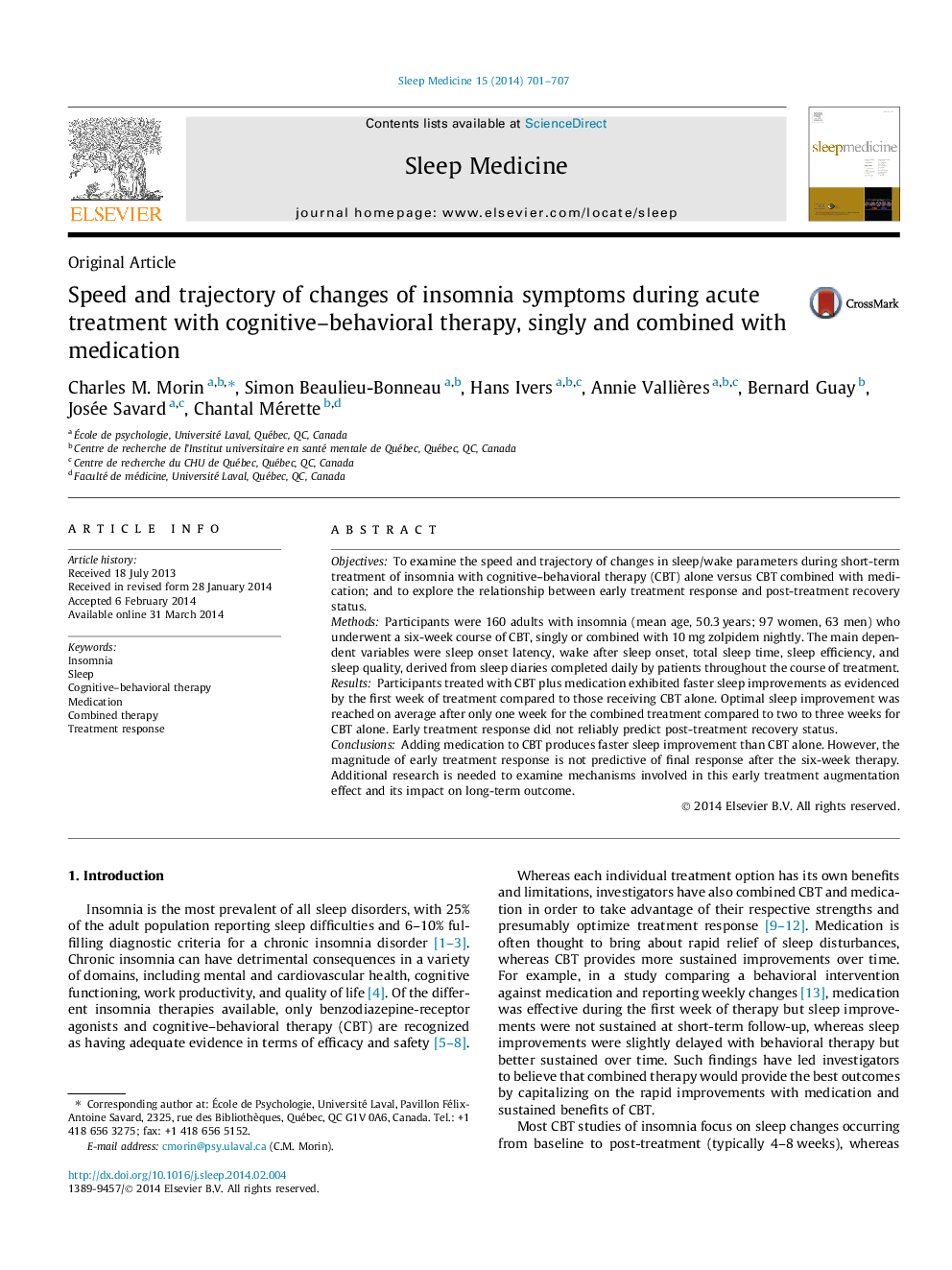| Article ID | Journal | Published Year | Pages | File Type |
|---|---|---|---|---|
| 3176127 | Sleep Medicine | 2014 | 7 Pages |
ObjectivesTo examine the speed and trajectory of changes in sleep/wake parameters during short-term treatment of insomnia with cognitive–behavioral therapy (CBT) alone versus CBT combined with medication; and to explore the relationship between early treatment response and post-treatment recovery status.MethodsParticipants were 160 adults with insomnia (mean age, 50.3 years; 97 women, 63 men) who underwent a six-week course of CBT, singly or combined with 10 mg zolpidem nightly. The main dependent variables were sleep onset latency, wake after sleep onset, total sleep time, sleep efficiency, and sleep quality, derived from sleep diaries completed daily by patients throughout the course of treatment.ResultsParticipants treated with CBT plus medication exhibited faster sleep improvements as evidenced by the first week of treatment compared to those receiving CBT alone. Optimal sleep improvement was reached on average after only one week for the combined treatment compared to two to three weeks for CBT alone. Early treatment response did not reliably predict post-treatment recovery status.ConclusionsAdding medication to CBT produces faster sleep improvement than CBT alone. However, the magnitude of early treatment response is not predictive of final response after the six-week therapy. Additional research is needed to examine mechanisms involved in this early treatment augmentation effect and its impact on long-term outcome.
